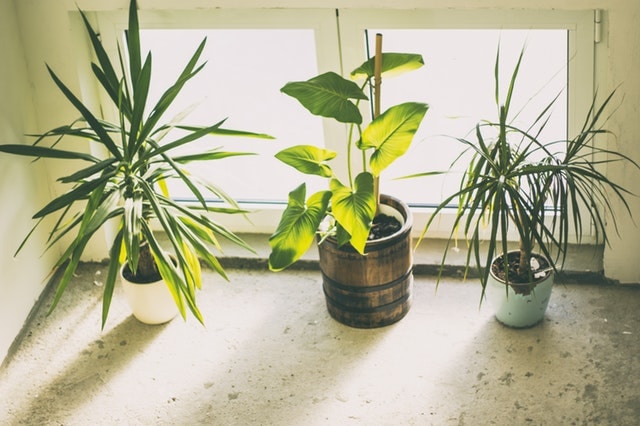Do you know that you can use spent mushroom compost for the plants? Mushrooms are saprophytes, they grow in dark humid places where dead compost is available. This mushroom compost can be of 60 to 70% straw, 28 to 34% poultry litter, and 2 to 4.5% gypsum. Other ingredients which can be used for compost are corn cobs, wheat bran, cattle manure, moss, lime, urea. Mushroom compost contains a high concentration of nitrogen, phosphorus, and potassium that is good for plants.
Mushroom compost vs Manure
A garden can brighten up the show of your house. It can also save the money you spend on buying vegetables from the market. To grow healthy vegetables, you need nutrient-rich and healthy soil. For organic farming, go for natural fertilization with compost or manure rather than commercialized chemical fertilizers. If you are a newbie at gardening, you can get confused between choosing compost and manure. Here we have shared our point of view that can help you make a wise choice between the two.
Differences between mushroom compost and cow manure
Mushroom is an organic material that comes in ready-to-use condition. It is already decomposed to provide the necessary nutrients to the soil. Apart from imparting healthy benefits to the soil, composting also decreases food wastage. The composting process using plant products like a mushroom is easy to carry out and can get prepared quickly.
Animal products, on the other hand, might take time to decompose and are thus discouraged. Mushroom compost is also known as spent compost because it has already been used once for growing mushrooms. One can grow mushrooms in various ways, making composting processes differ from each other. You can either buy mushroom spawn from the market or prepare it manually. Mushroom composting can take about three to four weeks by closely monitoring the temperature. You can also purchase unused mushroom compost as it is much less alkaline compared to the spent mushroom compost.
Manure is composed of animal waste. It also nourishes the soil and makes it healthier. It delivers various nutrients to the soil like phosphorus, potassium, and nitrogen. Manure is cost-effective and ensures that there is no pollution. Along with providing the necessary nutrients, it also kills weeds. Weeds act as competitors of your plants and might take up all their food, water, and space.
Manure thus also promotes plant growth by killing the weeds in your garden. Cow manure acts as an ideal organic fertilizer for gardens. It mainly contains grass and grain because cows eat grass. You can find various cow excretions in the fields from time to time, making cow manure easily accessible. It serves as an excellent bed for seeds. Cow manure is heavy, and you should use it in combination with lighter materials like hays, straws, ash, or lime.
Advantages and Disadvantages of Mushroom Compost
Mushroom compost is a good choice for your garden as it is easy to find. It is relatively affordable, ensuring you can give all the necessary nutrients to your soil at a low rate. Mushroom compost considerably increases the water holding capacity and thus improves the water threshold of your soil, reducing the watering needs. Enhancement in water retaining capability will lower down your efforts of watering your garden frequently.
Another advantage of this compost is its outstanding compatibility. Many garden plants like vegetables, fruits, herbs, shrubs, or flowers can be grown in the soil enriched with this compost. In a home garden, people prefer planting a variety of trees simultaneously. You can achieve this using manure compost without the stress of looking for a more compatible and flexible fertilizer. It will improve the soil structure in the garden, which is a long-term benefit. Improvement in soil structure will reduce waterlogging, which will lead to lesser fungal infections and healthier plants. Most of the nitrogen in the compost gets already used up by the mushrooms grown earlier in it. Low nitrogen amounts are best for the long-term health of your plants.
Although mushroom compost offers a wide range of pros, it certainly has some downsides too. The high salt levels make it an inconvenient fertilizer choice for salt-sensitive plants. Seedlings and young plants can also get affected due to high salt contents. Being alkaline in nature, it does not support plant growth. It needs an acidic environment for development.
Benefits and drawbacks of cow manure
As mentioned above, cows eat only grass because of which cow manure is rich in grass and grain. Cows excrete almost anywhere in the fields, making them available with ease. It is highly nutritious, but for appropriate usage, you need to mix some light materials like straws and ash with cow manure. It produces a low amount of greenhouse gases and thus is an environment-friendly option to use in your garden. Along with killing weeds that hamper plant growth, cow manure also facilitates good bacteria growth in the soil. It accelerates the absorption of nutrients into the soil and gives your plants the capability to fight diseases. It is also known to promote soil ventilation of your trees.
Cow manure can sometimes promote the growth of pathogenic bacteria in the soil. It also includes high ammonia levels, which decrease the oxygen intake by the plants. Thus it can be dangerous, especially for young plants and seedlings. The formation and usage of cow manure can also be tedious and might seem to be putting a lot of effort into a tiny house garden.
How to use mushroom compost and cow manure?
You have to mix mushroom compost with soil before sowing seeds. Remember not to use it alone. Mix one part of it in two parts of soil which will dilute the salt content in it, and the nutrients will spread evenly throughout. You can also buy a premixed compost packet from the market and add it directly to the soil.
To add cow manure to your garden mud, loosen the soil a little and add it. Make sure to mix some lighter materials into it before adding to the soil. Then you are good to go for the process of sowing the seeds.
What to choose: Mushroom compost or cow manure?
Both these products act as an excellent source of nutrients for your soil. You can produce healthy plants by nourishing your soil with compost as well as manure. Mushroom composting, however, is a less tedious process. You can still opt for composting cow manure to deliver nutrients to your soil. So select wisely according to your choice on availability and cost.
FAQs.
is mushroom compost good for roses?
Mushroom compost is a very high and good source of nutrients for many herbs, shrubs, and flowers, including roses. It will increase the water-holding capacity of the soil, which will significantly reduce the watering needs of your rose plants. Mushroom compost will provide all the needed supplies to your roses and is also reasonably inexpensive. To get the best results while using mushroom compost, ensure to mix it thoroughly with the garden mud before planting your roses. You can also allow it to sit over winter and then sow in the spring season.
is mushroom compost good for strawberries?
Mushroom compost supports the growth of fruits like strawberries as well. These plants require a lot of water while growing. Using mushroom compost will increase the water-holding strength of the soil. So water will get retained for a longer time, and you will have to supply less water. Strawberries also have a high nitrate requirement that you can fulfill by composting with mushrooms. Mushroom compost is known to have up to 32 mg/kg higher soil nitrates compared to other soils.
will mushroom compost burn plants?
Mushroom compost can supply nutrients to the soil and is best for seeds, seedlings, and young plants. Fresh and undiluted soluble salts can be too concentrated for germinating seeds and salt-sensitive plants like blueberries, azaleas, and rhododendrons. If you use too much mushroom compost, your plants can get burnt. Use it sparingly to be safe. You can also mix it with garden soil before sowing young plants in that mud. Allow the mushroom compost to rest uncovered to cure for a few months. This way, you can be double sure about not burning your plants.
what vegetables do not like mushroom compost?
Never use mushroom compost in the case of ericaceous plants. Examples of such plants are camellias, azaleas, rhododendrons, and other heathers, which require acidic growing conditions and are chalk-haters. Their broad leaves are pH neutral, and pine needle leaves are acidic. Mushroom compost is unsuitable for such fruits and vegetable plants that require neutral or acidic conditions. We do not recommend using it as a lawn top-dressing. Since it contains a high level of soluble salts, it is also better not to use it as a component in potting mixes.
Read Similar Posts:
How to make liquid fertilizer from kitchen waste?
The Guide to Organic Gardening for Beginners: Everything you Need to Know



